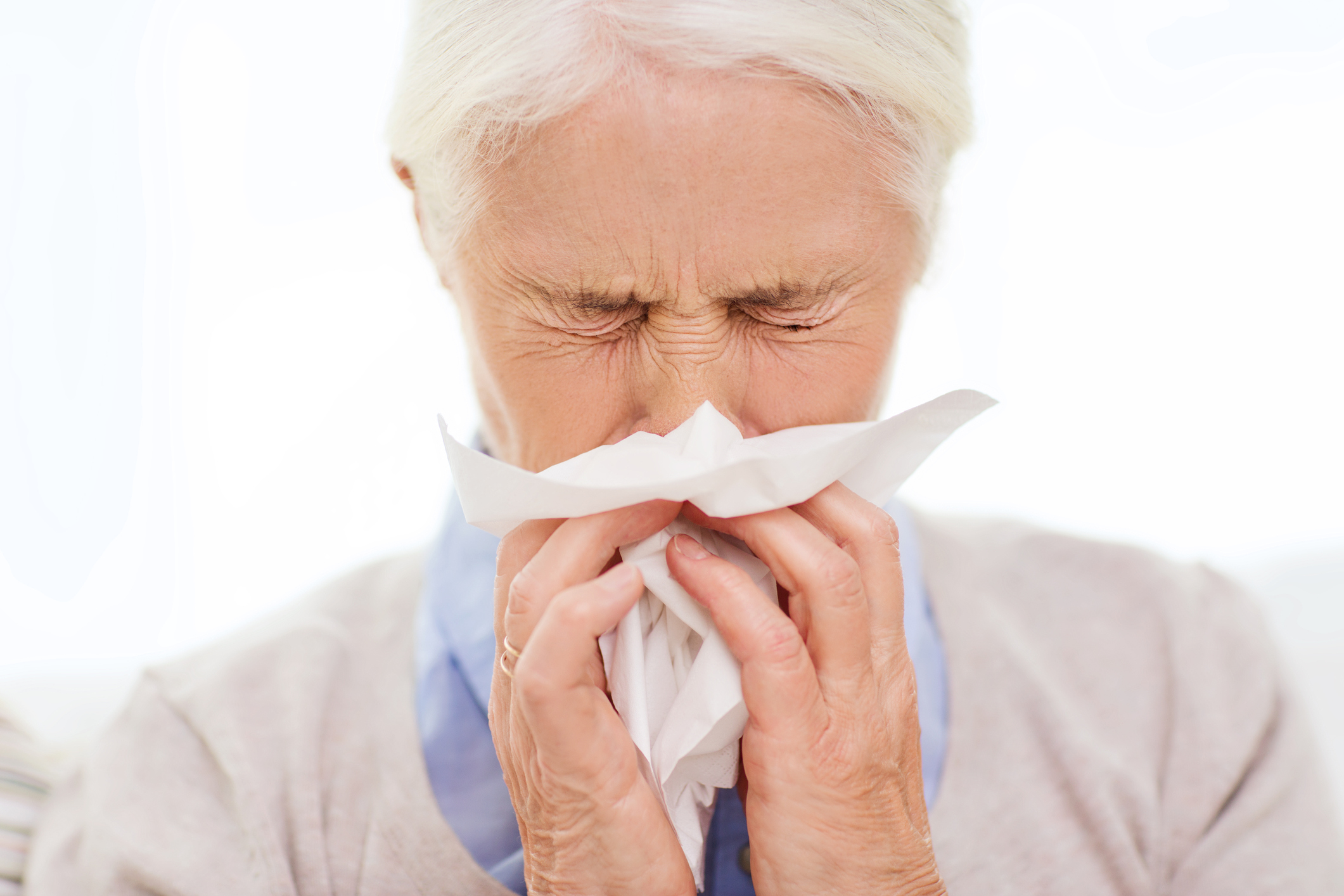Spring arrives for many adults with the annoying companion of seasonal allergies but sometimes a chronic runny nose may have more to do with aging than environmental irritants.
If you have noticed that an aging relative seems to always have a drippy nose and keeps a tissue close on hand at all times, it could be due to structural changes in the nose over time. In older age, the tip of the nose may start to drop because of the weakening of connective tissue and loss of collagen and elastin, along with a decrease in facial muscles. Older adults may also find changes have taken place in the nasal cavity causing obstructions or a decrease in airflow.
These changes in the supporting muscles, tissue and ligaments of the nose and face may also explain why many people believe their nose is getting bigger or wider with age. The nose may not be actually growing, but appear larger as the tip droops or the nostrils flatten and facial muscles become less supportive.
In some cases, medications can cause rhinitis or it can be a result of an allergy to pollens, molds or pet dander. Seniors are often dehydrated and this can also lead to difficulty clearing a stuffy nose. Older noses are less able to moisten and warm air resulting in dryness and nasal irritation. Using a humidifier or a saline nasal irrigation may offer some relief. Emollients can help with nasal dryness and crusting.
According to an article published in Allergy, Asthma and Clinical Immunology in 2010, an estimated 19 million Americans suffer from nonallergic rhinitis and of patients over the age of 50, more than 60 per cent have a nonallergic cause.
Talk with your doctor about symptoms of geriatric rhinitis or to learn more visit the American Academy of Otolaryngology by following this link.






Add Your Voice
0 Comments
Join the Discussion